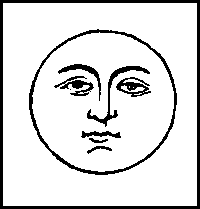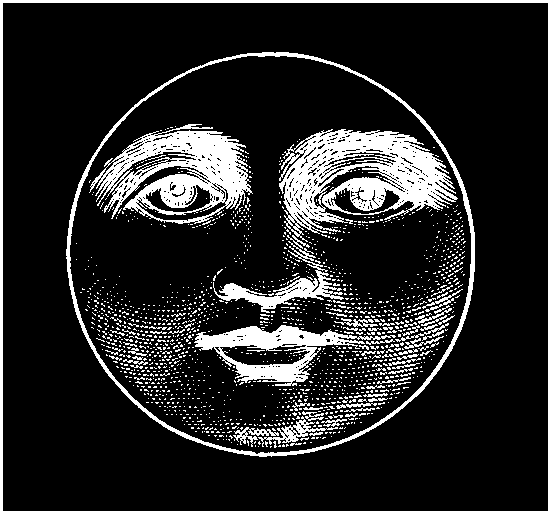Author Simmons is obviously someone we'd want to know --- smart, writerly, open-minded. He's also someone who got a terrible draw of the cards. Still, as I read and re-read his words, I kept feeling that there was something awry. It may have something to do with the implied premise that there is a God in Heaven and that he sends down bad things to teach us to be good. The plague, boils, ALS, terrible sickness, decay, aging --- all these serve a higher purpose: to bring us closer to the divine. Simmons denies this, says, "Rhyme and reason, after all, are human values, not divine ones." But then, "Thank God for the sunset pink clouds over Red Hill," he says, "but also for the mosquitoes I must fan from my face while watching the clouds. To thank God for broken bones and broken hearts, for everything that opens us to the mystery of our humanness."
Now I'm never one to fault another man's divine. We have to cling to whatever life raft they leave behind in the icy waters when the boat goes down. But this old Testament stuff does try one's patience. Largely, I believe, because it has the faintest aroma of pollyanna.
I think the fault of all this lies not with the divine, but with the syllogism. Simply stated, Simmons' premise is,
- I have [a disease, a woe, a travail].
- Thus I am suffering.
- We are all going to suffer sometime.
- This suffering has a purpose, because
- Suffering is part of the handiwork of the divine to teach us grace, or, better --- how to fall with grace.
I should like to put forth what might be a more user-friendly syllogism:- I have [a disease, a woe, a travail].
- I am suffering but this suffering probably doesn't mean squat.
- It will not make me wiser or nicer or more humane or more wonderful.
- Nor does it have to make me more bitter, wrathful, depressed, or suicidal.
- Also, we can't blame all this on the divine: the divine don't work that way.
- He (or she or it) may have set the whole merry-go-round in motion, but he (or she or it) is not involved in our day-to-day.
- Especially with questions of pain, misery, suffering, and death. (As John Cage said, they're there "merely to thicken the broth.")
§ § §Despite his training in Eastern religion, Simmon's concept of the divine comes across as traditional. One of his later chapters treats, at length, the historical as well as the spiritual Jesus; and his conclusions lead one to believe that he has a great deal invested in the western version of the harsh-but-just God.The contrary view is, to many of us, more satisfying. The divine isn't circling around out there trying to figure out how to get you and me to mind our p's and q's. Zoroaster, Confucius, Joseph Smith, Mohammed, and Jesus Christ were not appointed by God to come down here to get us to better tend the earthly potato-patch. Above all, the divine did not send down his only begotten son just so you and I would be forced to put up with the likes of the Mormon Elders, Pat Robertson, John Ashcroft, Benny Hinn (if not Benny Hill), Jerry Falwell, and Rod Parsley and his bunch. (And, despite the oft-repeated popular song, God has, as of yet, shown little interest in blessing America.)
 And even though there are strong hints that we're constructed out of the same leavings as the divine --- humans will continue to do foolish and hurtful things (robbing, raping, bedeviling the very old, starting wars --- in the name of God --- so we can trash the very young). Too, despite explicit messages in the Bible, Alcoran, the Vedas, the Dhammapada, the Bhagavad Gita and the Adigranth, people will continue to make wars and DDT and ICBMs and AK-47s and landmines, at the same time as they are making love and babies and acts of supreme goodness and openhearted charity.
And even though there are strong hints that we're constructed out of the same leavings as the divine --- humans will continue to do foolish and hurtful things (robbing, raping, bedeviling the very old, starting wars --- in the name of God --- so we can trash the very young). Too, despite explicit messages in the Bible, Alcoran, the Vedas, the Dhammapada, the Bhagavad Gita and the Adigranth, people will continue to make wars and DDT and ICBMs and AK-47s and landmines, at the same time as they are making love and babies and acts of supreme goodness and openhearted charity.
Good people will go poor and starve; good people will also get rich and be generous with those who don't have. Bad people will get super rich and continue to rob the have-nots. Bad people will also get cancer or TB or AIDs and suffer and die horribly.
Beautiful sweet children will grow up to live through war, rapine, starvation and injustice; beautiful sweet children will also grow up happy and inherit great fortunes (of kindness, of money). Ugly brutish children will grow up and be fabulously wealthy and develop cluster bombs; ugly brutish children will also contract palsy, end up in the gutter, die horrible deaths in fires, explosions, flaming wrecks, and earthquakes.
It's all part of the dance. Great joy and great suffering will fall a will-o'-the-wisp on all without warning, probably without meaning. To try to pin this stuff on the divine is false advertising. In truth, the divine has other fish to fry, certainly hasn't the time to mete out painful lessons to you or me or bad people or terrorists or world corporate greedyheads or eco-destructives or pious millionaires.He and/or she and/or it set the whole business in motion but then they've moved on, leaving behind a little talisman: a snippet of the godhead. If we choose to access it, fine. If not, it's our problem, not theirs.
For no matter what we do --- whether we ignore it or fight it or worship it or run roughshod over it --- that little wisp of holiness is going to keep on bobbing around inside of us. It has different names in different parts of the world and even among members of the same tribe, clan, cult, or culture. Some call it soul, some call it the divine within, some the holy spirit, some the spark, some the fire. Whatever name you put on it, it's just the same: a sage and subtle presence inside all of us, deep in the hearts of you and me and the saints and the good folk, as well as the con-men, rapists, murderers, politicians, and fundamentalist preachers.
If we choose to tune in on its particular frequency (a quiet series of almost inaudible, staggeringly beautiful chords) it will tell us all that we need to know. No Bibles, Torahs, Korans, or buried golden tablets need apply.
§ § §I suspect that Simmons hasn't quite figured this out yet. He's on the right path --- he does manage to squeeze Rumi and the Buddha and the transcendentalists into Learning to Fall. But he also seems to be hung up on the mythical Jesus and a "God" and all those English Major prophets: Robert Frost, Wallace Stevens, Edmund Burke, Thomas Merton.
The doctors have told him that his time is nigh, but I am hoping that he will be around for a whole lot longer. Not only because he is a good guy (and all of us hate seeing good guys being shut down forever) but also because if he does stay with us for awhile, there is a good chance that he will get it ... That suffering isn't sent around like some ill-tempered 5th grade school marm to make us miserable so we'll behave and believe.
Suffering is all about us --- always has been, always will be. What you and I do with it is certainly important to us and those around us --- but, in the long run, it makes no difference. Because suffering (no matter how ghastly) is just another part of the dance.
And if we don't pick up on the specific message they're sending us from the dark valley over there --- if we don't get it this time, I promise you, after they salt us away --- we'll be back, rising up over the hill again --- forced, yet again, to work it out for ourselves. All over again. And again. And again.


 And even though there are strong hints that we're constructed out of the same leavings as the divine --- humans will continue to do foolish and hurtful things (robbing, raping, bedeviling the very old, starting wars --- in the name of God --- so we can trash the very young). Too, despite explicit messages in the Bible, Alcoran, the Vedas, the Dhammapada, the Bhagavad Gita and the Adigranth, people will continue to make wars and DDT and ICBMs and AK-47s and landmines, at the same time as they are making love and babies and acts of supreme goodness and openhearted charity.
And even though there are strong hints that we're constructed out of the same leavings as the divine --- humans will continue to do foolish and hurtful things (robbing, raping, bedeviling the very old, starting wars --- in the name of God --- so we can trash the very young). Too, despite explicit messages in the Bible, Alcoran, the Vedas, the Dhammapada, the Bhagavad Gita and the Adigranth, people will continue to make wars and DDT and ICBMs and AK-47s and landmines, at the same time as they are making love and babies and acts of supreme goodness and openhearted charity. 